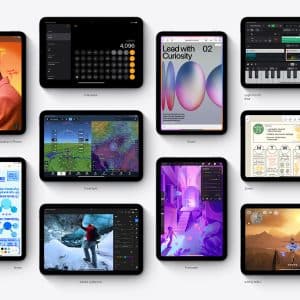With the advent of the pandemic, the virtual world has become the go-to meeting point for millions across the globe. It offered a fast and convenient way to continue any form of engagement, especially after the stringent lockdown and travel movement restrictions.
The pandemic showed that professionals such as therapists could continue to undertake their activities virtually easily and conveniently. But the question remains, how effective is online counseling for in-person therapy sessions?
Today’s article will explain why online therapy can be as effective as in-person therapy.
It offers privacy & confidentiality
There is still a stigma surrounding mental health and other therapy-related ailments, with individuals continuing to face continued stigma and discrimination. These two issues make it difficult for affected individuals to openly seek mental health services and treatment, leaving many to suffer in silence.
However, that has changed and will continue to change with the rise in online therapy, where individuals can access mental health services from the comfort of their home or workspace without others knowing.
Online therapy is effective since individuals give themselves the chance to seek treatment and recover under tight privacy and confidentiality. So, if you feel overwhelmed with depression, post-traumatic stress disorder, stress, or any other mental health ailment and want to seek treatment discreetly, all you need to do is sign up for virtual counseling services.

It offers convenience & affordability
In terms of time and resources, virtual therapy is convenient. Unlike physical sessions, where you must make travel arrangements, with virtual therapy you sign up for the online sessions, book a convenient appointment schedule, and take the session from wherever you are.
Besides, the sessions are affordable since the online space is free, and sessions can happen anywhere, provided internet connectivity is excellent. On average, you will pay between $50 and $90 per week for the sessions, which is affordable, considering you will eliminate the transport cost.
A pool of professional therapy & services
As stated earlier, the pandemic forced many people, including professionals, to create a virtual presence to ensure that they can continue to offer their services. Virtual therapy is effective as it allows different professionals to come together and offer different services.
Unlike physical sessions, where you can visit a different therapist for a different issue at a different time, virtual therapists are under one roof. All you need to do is make online appointments with different therapists at convenient times.
You can attend all sessions from wherever you are. Teen Counseling, for instance, offers several therapy-related services, including low self-esteem, anxiety, trauma, gender-identity issues, anger management, depression, relationship issues, bullying, and eating disorders.
Offer different modes of delivery
For some people, the thought of having face-to-face therapy sessions can be a tall order leading to many abandoning those sessions altogether. However, virtual therapy is effective for such people who would not want face-to-face sessions.
Many virtual therapy sites offer different delivery modes, including live chats, videos, and texts. This flexibility makes virtual therapy effective, and if you are those people who fear face-to-face interactions, then you are sorted with virtual therapy. You can find a therapist online at Dallasnews.com available on platforms such as BetterHelp, ReGain, Talkspace, and Calmerry, which provide different delivery modes for their clients.
Research supports its effectiveness
The only difference between virtual and traditional therapy sessions is that virtual therapy eliminates the physical connection between the therapist and the client. Other than that, everything remains the same.
Different research studies have proven virtual therapy’s effectiveness, demonstrating that they deliver the same results as traditional therapy. One study under the National Library of Medicine titled Effectiveness of a Multimodal Digital Psychotherapy Platform for Adult Depression: A Naturalistic Feasibility Study demonstrates the effectiveness of online therapy in treating major depression and other forms of mental disorders.

Virtual therapy has its downside
Several downsides exist when it comes to virtual therapy sessions. The first issue is poor internet connectivity. This issue can cause disruption especially if you are in a place with low or poor internet connectivity, which can affect video and voice quality.
The second issue is people’s attitude towards virtual activities, especially those from older generations who lack the knowledge and technical know-how to operate in the virtual world. In that case, people prefer traditional therapy sessions because they feel they can get the best out of them.
The final downside is that it is challenging for therapists to pick their clients’ body language and physical cues. For instance, patients with psychological difficulties online, such as those dealing with psychosis or suicidal intentions, cannot benefit much from virtual therapy, especially at the advanced stages of their treatment.








